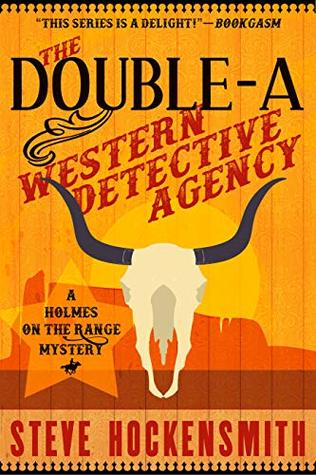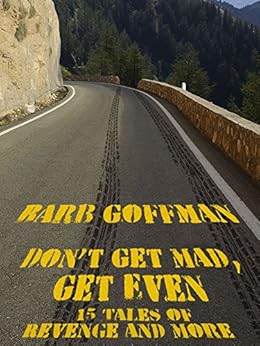--"The Spider and the Fly" by Mary Howitt
I spent the last few days at the Malice Domestic mystery convention, learning about new mystery novels and stories, catching up with old friends, and listening to panels about books and writing. One topic that particularly interested me was the importance of first lines.
I was reminded of some research results I learned in journalism graduate school nearly three decades ago. If I remember correctly, the average newspaper reader first looked at the photo accompanying an article, then at the headline, then at the cutline (caption) under the photo, and then, maybe, started reading the article. If the author didn't grab the reader in those first ten (or was it thirty?) seconds, it wouldn't matter how good or important the rest of the article was; that reader was never going to know what it said.
I don't know if these results would still be the same today, though I'd guess readers probably spend even less time considering whether to read an article, especially because sometimes all they see is a photo and the headline; then they have to decide to click if they want to read more.
And this all brings me to this question: how do these results apply to reading novels and short stories? Before buying or borrowing a book, do readers look at the cover (akin to the newspaper photo), then the headline (the title), then the cutline (perhaps a blurb on the cover), and then check out the first sentence or first page before deciding whether to buy or borrow a book? I'd bet that a lot of readers do.
My approach is to look at a book's cover and to consider its author. If I'm intrigued by the cover, if it has the right mood, or if the book is written by an author I've enjoyed before, I might decide to read it without gathering any additional information. If I'm still unsure, I'll read the book's description and maybe some reviews online. I don't usually check out the writing--the first line or first paragraph--before before deciding whether to move forward. Maybe I should do that because the quality of the writing will definitely affect whether I ultimately read to the end or give up early. If a writer has lured me in, like the spider with the fly, I'll probably keep turning those pages. But if I don't care about the characters, I might stop after two or three chapters. Sometimes I'll flip to the end of a whodunit to see if my guess about who the bad guy is was right. But sometimes I don't even care about that. As the saying goes, life is too short to waste time on bad books.
 |
| How's this for an anthology cover that lures the reader in? |
I take a more lenient approach with short stories, perhaps because the short story is my preferred medium. Unless the writing is poor or the story is particularly boring or way too dark for me, I'll usually read the whole thing. But that doesn't mean that a solid first line or first paragraph isn't important. Indeed, that opening can sometimes make or break the "is this boring?" decision.
That said, thinking about the openings to my own short stories, I hope other readers are even more lenient than I am. For while I sometimes write openings that, I hope, make readers react, luring them in with a splash, at other times, I use the opening to bring readers into a particular setting, where they might see something important. It might not seem exciting, but it sets the stage for all that comes. And at other times, the opening is all about setting the mood.
Here are some examples:
- Murder's always a sin. But it especially feels like sacrilege when I get called from church on a Sunday morning because a body's been found.
"Till Murder Do Us Part" in Chesapeake Crimes: Fur, Feathers, and Felonies
This is a mood opening, as well as an opening with a bang. I hoped this beginning's mood would lure the reader in, as would the knowledge that the reader is embarking on a murder case with a caring, honest sheriff.
- Looking back, I should have known something was wrong when the pot roast disappeared.
"The Case of the Missing Pot Roast" in Florida Happens
With this first sentence, I aimed to convey that something odd--and funny--was happening, something that the main character was overlooking. That, I hoped, would intrigue the reader to keep going.
- It was the night before Thanksgiving, and Garner Duffy stood just inside the entrance of the community center, scanning the large room. He knew exactly what he was looking for.
"Bug Appetit" in the November/December 2018 issue of Ellery Queen's Mystery Magazine
By using an opening similar to that of Clement Clark Moore's famous poem "A Visit from St. Nicholas," I hoped to get the reader into the mood to read a holiday-related story. And I hoped the second sentence would make the reader wonder what Garner was looking for and read on to find out.
- "The defense calls Emily Forester."
- My attorney squeezed my hand as I rose. If anyone noticed, they probably viewed it as a comforting gesture. I knew better. Bob was imploring me to use his plan, not mine. Too bad, Bob. This was my murder trial, and we were doing things my way.
"The Power Behind the Throne" in Deadly Southern Charm
This opening drops the reader into the middle of the action and, I hoped, intrigues the reader to want to see what happens next with this headstrong defendant.
- They say appearances can be deceiving. No one knows that better than me. Everyone's always thought I had it made. Only kid in the richest family in town with a steady supply of cool new clothes and fancy vacation plans. Never had a worry.
"Punching Bag" in the Winter 2019 issue of Flash Bang Mysteries
This opening is more of a setting-the-stage opening. There's no pounding action here. Instead, the reader is invited into the life of a minor--the character's age isn't clear yet. There's the hint of secrets. Of a family unraveling.That something is definitely wrong. All of this, I hoped, would intrigue the reader to keep going.
Do these opening work? Do they achieve their goal of luring the reader into the story? Of letting the reader know that something interesting, something enticing, something the reader *must* know about is happening? I certainly hope so. Because as I learned in journalism school nearly three decades ago, if you don't lure the reader in, it doesn't matter how good the rest is because a lot of people won't bother to read it.
Do you have any favorite opening lines? Please share in the comments and include why you think that line works so well.
































